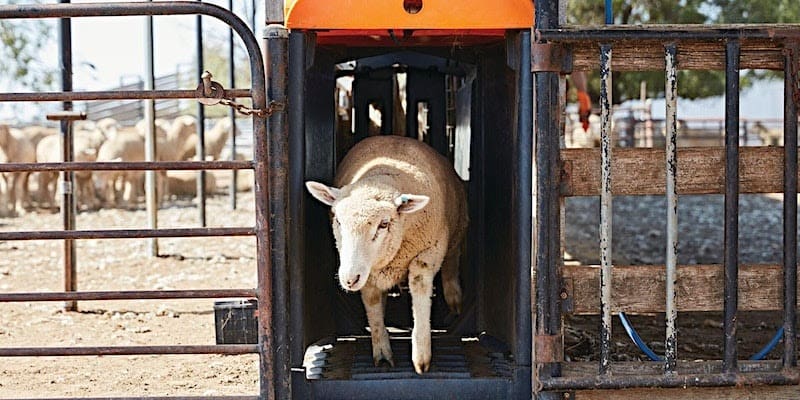
SOUTH Australian sheep producers are delaying purchasing electronic identification equipment due the State Government’s failure to release guidelines for a rebate scheme announced almost two months ago.
Stage one of the SA Government’s $9.3 million EID investment announced on 8 June involved a 50 percent per tag subsidy in 2023-24 and 2024-25 for newborn lambs and kids, to encourage early adoption that aligned with the national start date for mandatory EID tagging of farmed sheep and goats.
Essential infrastructure required for implementation of EID across the SA supply chain will be subsidised by 75pc, but no details on when this would apply have been released.
Livestock SA chief executive officer Travis Tobin has said the 50pc EID tag rebate was agreed to because it notionally brings the cost to under $1 to producer. Sheep Central has been told the rebate is based on a notional NLIS tag/device cost of $1.90 and the rebate will be paid retrospectively on presentation of a paid invoice for producers who have already bought their EID tags or devices.
At a Livestock SA ‘Using EID to make informed decisions’ workshop at the Struan Best Practice Demonstration Farm yesterday, Cousins Merino Services consultant Michelle Cousins said the rebate was enticing, but she was told by a Gallagher representative that a lot of producers were holding off buying equipment because they are waiting to see what the government rebates were going to be.
“I think still it is worthwhile waiting to see what that is, but the priority is going to making sure that our saleyards and our abattoirs and everything else are set up to match the system first.
“I hate to tell you, farmers will be last,” she said.
“Hopefully there is some money left over that will flow through the system, but I think the really important thing is to do your homework about what you need and what the benefits are of buying equipment.”
Livestock SA biosecurity extension officer Pene Keynes said the body wanted to avoid double tagging, but government decisions were yet to be announced included timelines for rebates, and guidelines for accessing the rebates.
 “We know that the guidelines will backdate to the 1st of January 2023, but we don’t know the full guidelines for those rebates.”
“We know that the guidelines will backdate to the 1st of January 2023, but we don’t know the full guidelines for those rebates.”
But she said the rebates will be for equipment essential for traceability.
“So it is not about getting every piece of equipment known to man that that (companies) are selling; it’s about focussing on the pieces of equipment that are essential to improve our traceability.”
Department of Primary Industries and Regions, South Australia, biosecurity officer Tara Vandeleur said the saleyard implementation dates are still being considered by the government. She said the finer details of the rebate eligibility are still being worked through and would be finalised “hopefully very soon.”
After the workshop, Ms Cousins said many producers were already tagging this year’s lambs, but to start using some of the new EID technology they need certainty on the rebate guidelines. She was not aware of any producers who had not put EID tags in because of the rebate guideline uncertainty.
“I think there had been some clarity about the rebates a bit earlier you probably would have got people putting in some EID ear tags this year.
“It just helps them get used to the technology and hopefully pick up some productivity benefits that go along with that.”
She said the level of EID adoption in the state has been good and awareness was probably better than in Victoria before it mandated sheep and goat EID in 2017.

HAVE YOUR SAY